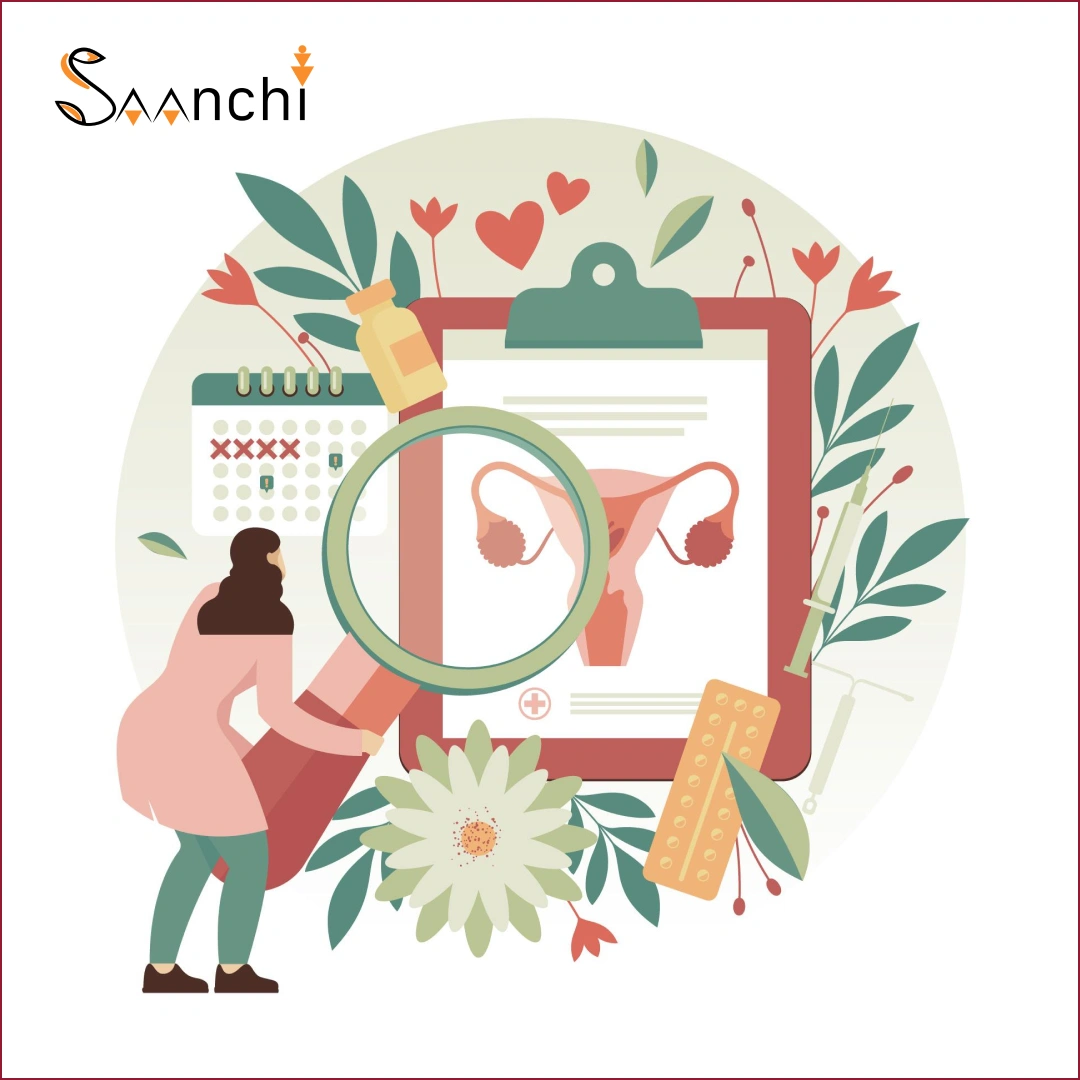Polycystic Ovary Syndrome (PCOS) is a common hormonal disorder affecting women of reproductive age, and it is a leading cause of infertility. While the condition manifests in various ways, one of its most challenging aspects is the impact on a woman’s ability to conceive. This blog delves into understanding the link between PCOS and infertility, offering insights into symptoms, causes, and treatment options.
What is PCOS?
PCOS, or Polycystic Ovary Syndrome, is a hormonal disorder that affects the ovaries’ ability to function properly. Women with PCOS may have numerous small cysts (fluid-filled sacs) on their ovaries, which interfere with normal ovulation. This condition impacts both reproductive and overall health, often causing irregular periods, hormonal imbalances, and metabolic disturbances.
Symptoms of PCOS
- Irregular Menstrual Cycles
- Prolonged, infrequent, or absent menstrual periods.
- Excess Androgens (Male Hormones)
- Symptoms include excessive facial and body hair (hirsutism) and acne.
- Weight Gain
- Particularly around the abdomen, along with difficulty losing weight.
- Skin Changes
- Darkened skin patches (acanthosis nigricans), especially in body folds.
- Ovarian Cysts
- Many women with PCOS develop small, immature follicles that resemble cysts.
How Does PCOS Cause Infertility?
Infertility is one of the most significant and concerning symptoms of PCOS. Here’s a detailed explanation of how PCOS leads to infertility:
- Irregular Ovulation
- Elevated androgen levels and insulin resistance disrupt the development and release of eggs.
- This leads to infrequent ovulation or anovulation (complete absence of ovulation), making it difficult for fertilization to occur.
- Impaired Follicle Maturation
- In PCOS, ovarian follicles fail to mature properly, leading to cyst-like structures.
- Without mature eggs being released, conception becomes impossible.
- Hormonal Imbalances
- High luteinizing hormone (LH) and low follicle-stimulating hormone (FSH) disrupt egg development and ovulation.
- Endometrial Dysfunction
- Irregular menstrual cycles often result in a poorly prepared uterine lining, reducing the chances of successful implantation even if fertilization occurs.
Treatments for PCOS and Infertility
The link between PCOS and infertility can be managed through proper treatment and lifestyle modifications.
- Lifestyle Changes
- Diet and Exercise: A balanced diet low in processed foods and refined sugars, coupled with regular physical activity, helps reduce insulin resistance and weight.
- Weight Loss: Losing as little as 5-10% of body weight can restore ovulation in many women.
- Medications
- Metformin: Improves insulin resistance, reduces androgen levels, and promotes ovulation.
- Clomiphene Citrate: A first-line treatment to stimulate ovulation.
- Letrozole: Often used to induce ovulation in women with PCOS.
- Assisted Reproductive Techniques (ART)
- In Vitro Fertilization (IVF): A viable option for women who do not respond to other treatments.
- Surgical Options
- Laparoscopic Ovarian Drilling (LOD): A minimally invasive procedure to destroy androgen-producing tissue in the ovaries, promoting ovulation.
How PCOS and Infertility Affect Emotional Well-Being
The journey of managing PCOS and infertility often takes an emotional toll. Women may experience anxiety, depression, and low self-esteem due to hormonal imbalances and the challenges of conceiving. Emotional support, therapy, and peer support groups can help women navigate this difficult time.
Saanchi: Supporting Women with PCOS and Infertility
At Saanchi, we are committed to empowering women through education, care, and support. Our initiatives provide resources and guidance to help women manage PCOS and overcome infertility challenges. By addressing both physical and emotional health, we aim to create a holistic approach to wellness, helping women achieve their dreams of a healthier, happier life.
Conclusion
Understanding the link between PCOS and infertility is the first step toward managing this complex condition. With the right treatment, lifestyle changes, and emotional support, women with PCOS can improve their chances of conception and lead fulfilling lives. Remember, early diagnosis and proactive care make a significant difference in overcoming the challenges posed by PCOS.


